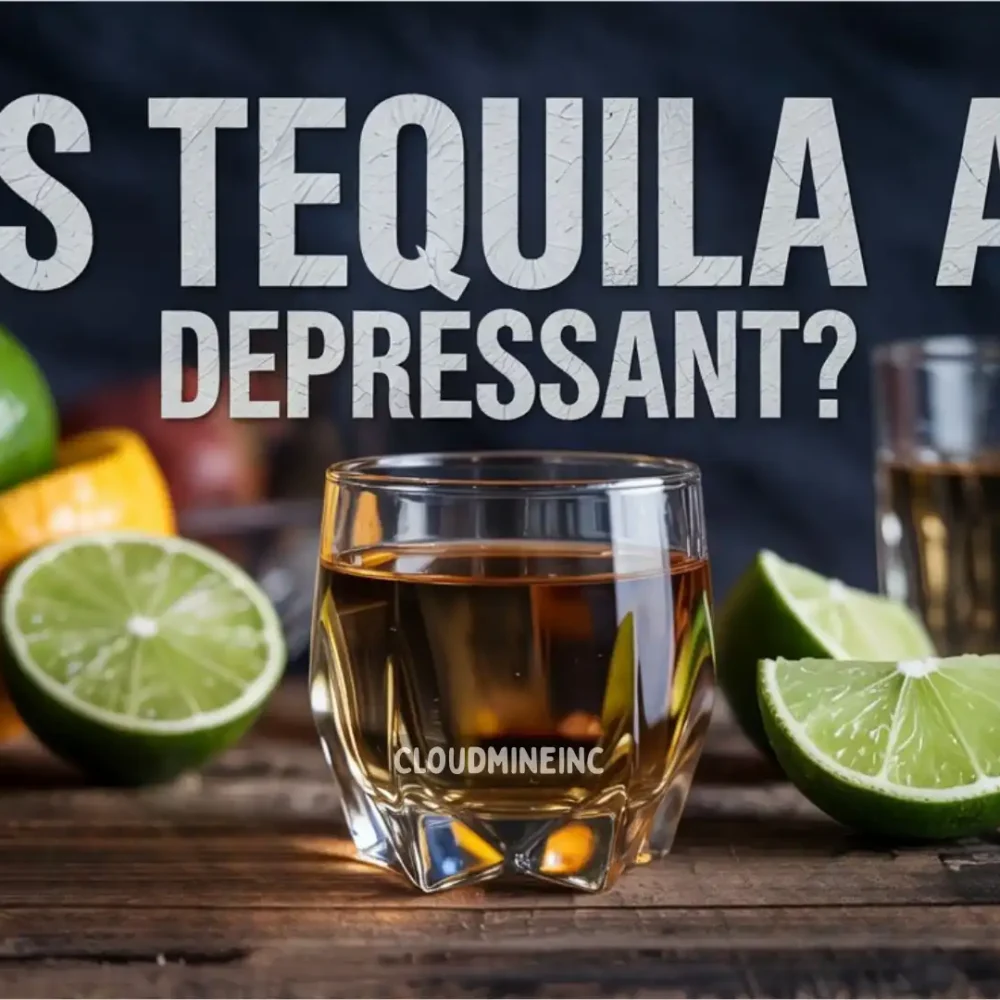
Last Updated on August 21, 2025 by Beth Skwarecki
Ever found yourself at a party, watching someone take their third tequila shot and suddenly transform into the life of the party? You’re probably thinking, “Wow, tequila must be some kind of stimulant!” But here’s the plot twist that might surprise you: tequila is actually a depressant.
I know, I know. It sounds crazy when you see people getting hyped up after a few shots. But stick with me here, and I’ll break down exactly why this party legend is totally wrong.
What Exactly Is Tequila?
Before we tackle whether tequila is a depressant, let’s get our facts straight about what this spirit actually is.
Tequila comes from the Weber blue agave plant, and it’s exclusively made in specific regions of Mexico. The production process is pretty fascinating—they harvest these massive agave plants (which look like giant aloe vera plants with attitude), extract the piña (the bulbous center), bake it until the starches convert to sugar, then ferment and distill the juice.
You’ve got five main types of tequila:
- Blanco (White): Unaged and pure
- Gold: Mixed with additives like caramel
- Reposado: Aged 2-9 months in wood
- Añejo: Aged 18 months to 3 years
- Extra-Añejo: Aged over 3 years
But here’s the kicker—no matter which type you choose, they all contain the same active ingredient: ethanol. And ethanol? That’s what makes tequila a depressant.
Why Everyone Thinks Tequila Is Different
Let me guess—you’ve heard the urban legend that tequila is the only alcohol that acts as a stimulant. Maybe someone told you it’s because of the agave plant, or perhaps you read it on social media.
Here’s the truth: this is complete nonsense.
Dr. Nehal Vadhan, a psychologist who specializes in substance use, explains that the myth comes down to context and consumption patterns. Think about it—when do you usually see people drinking tequila? At parties, in shots, during celebrations. Compare that to wine, which people sip slowly with dinner.
The “stimulating” effects you see aren’t because tequila isn’t a depressant—they’re because of:
- Social setting: People are already excited and ready to party
- Consumption method: Quick shots vs. slow sipping
- Expectations: People expect to get wild, so they do
- Sugar content: Cocktail mixers can spike blood sugar
The Science: Why Tequila IS a Depressant
Let’s get nerdy for a minute. Tequila is a depressant because it contains ethanol—the same intoxicating compound found in all alcoholic beverages. This stuff doesn’t care if it comes from agave, grapes, or grain; it affects your central nervous system the same way.
When you drink tequila, here’s what actually happens:
Initial Phase (The “Fake” Stimulation)
- Euphoria kicks in
- You feel more social and confident
- Inhibitions drop
- You might feel energetic
The Reality Check
- Brain activity slows down
- Coordination decreases
- Drowsiness sets in
- Depression of nervous system functions becomes obvious
The confusion happens because people focus on those first few minutes of euphoria and ignore what comes after. But make no mistake—tequila is a depressant, and that initial “high” is temporary.
How Tequila Affects Your Body and Brain
Understanding how tequila functions as a depressant means looking at what it does to your body systems:
Brain Function
Tequila slows down neurotransmitter activity that controls mood and cognitive function. While you might feel relaxed or happy initially, continued consumption leads to impaired judgment, slowed thinking, and eventually, sedation.
Physical Coordination
Like all depressants, tequila affects motor skills. Your balance gets worse, reaction times slow, and fine motor control decreases. This is why drinking and driving is so dangerous—tequila is a depressant that significantly impairs your ability to operate machinery.
Cardiovascular System
Tequila can affect heart rate and breathing. In combination with other depressants (like prescription sedatives), this can become dangerous.
Long-term Impact
Regular heavy consumption can lead to liver problems, heart issues, and mental health disorders. The depressant effects of tequila compound over time with chronic use.
Tequila vs. Other Alcohols: Any Real Difference?
Some people swear that tequila affects them differently than other alcohols. While there might be slight variations due to congeners (byproducts of fermentation) or production methods, the core truth remains: tequila is a depressant just like vodka, whiskey, rum, or any other spirit.
The alcohol content is similar too—most tequilas clock in at 38-40% alcohol (76-80 proof), which is standard for distilled spirits.
If you’re feeling different effects, it’s probably because of:
- How much you’re drinking
- How fast you’re drinking it
- What you’re mixing it with
- Your expectations and environment
The Hangover Reality
Let’s talk about something everyone experiences: the hangover. If tequila were actually a stimulant, wouldn’t you expect to wake up feeling energized? Instead, most people report feeling terrible the next day—tired, depressed, anxious, and physically drained.
This is your body’s way of telling you that tequila is a depressant and your nervous system is rebounding from being suppressed. Some people claim tequila hangovers are milder, but that’s likely due to fewer congeners in pure agave tequilas, not because it’s somehow different from other alcohols.
Making Smart Choices About Tequila
Now that you know tequila is a depressant, you can make more informed decisions about drinking it. Here are some practical tips:
Drink Responsibly
- Set limits before you start
- Alternate with water
- Eat before and during drinking
- Know your tolerance
Avoid Dangerous Combinations
Never mix tequila with:
- Prescription depressants
- Sleep medications
- Anxiety medications
- Other sedatives
The depressant effects of tequila can be amplified dangerously when combined with other substances.
Watch for Warning Signs
If you find yourself:
- Drinking tequila frequently
- Using it to cope with stress or depression
- Unable to control your consumption
- Experiencing negative consequences
It might be time to seek help. Remember, tequila is a depressant, and regular use can contribute to or worsen mental health issues.
FAQs
The Bottom Line: Tequila Reality Check
Here’s what I want you to remember: tequila is a depressant, full stop. The party reputation and stimulating myths are just that—myths. While there’s nothing wrong with enjoying tequila occasionally and responsibly, it’s important to understand what you’re putting into your body.
The next time someone tries to tell you that tequila is different from other alcohols, you can set them straight with the facts. And if you’re struggling with alcohol use, remember that help is available. Tequila being a depressant means it can seriously impact your mental health and overall well-being.
Stay informed, drink responsibly, and don’t believe everything you hear at parties 😉

Beth is Cloudmineinc’s senior health editor and a certified personal trainer. She has over 10 years experience as a science journalist and is the author of two books. She deadlifts over 315 lbs.